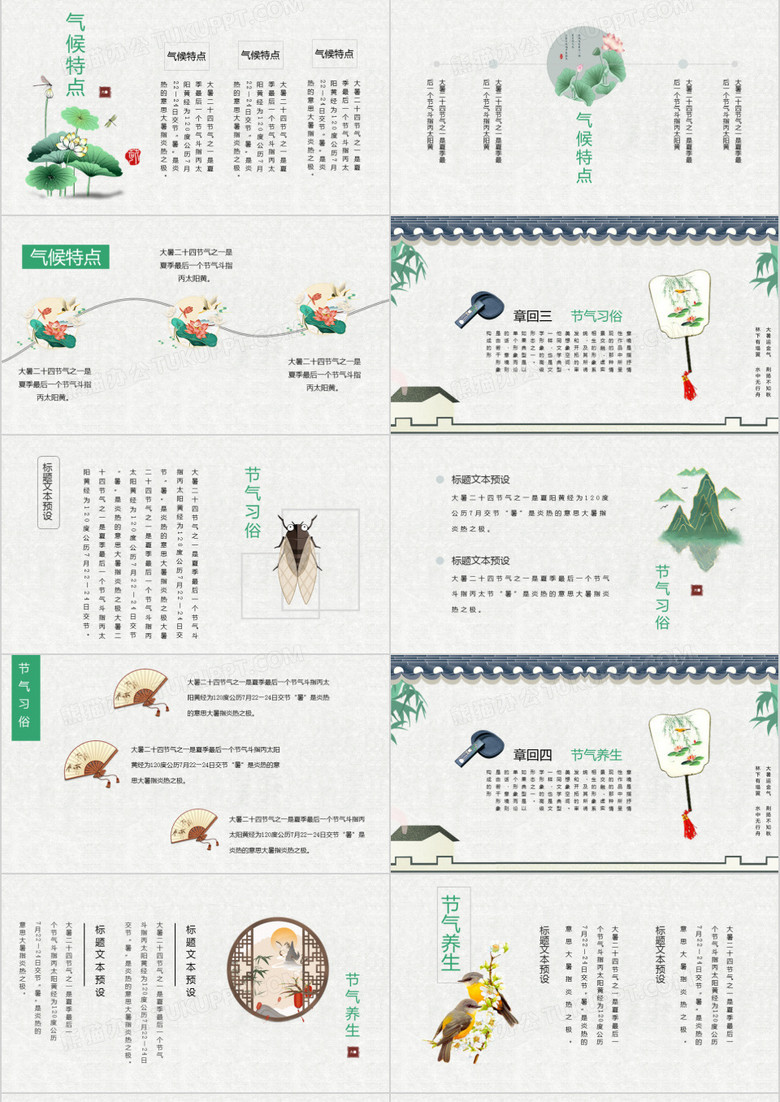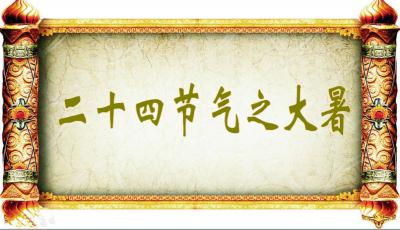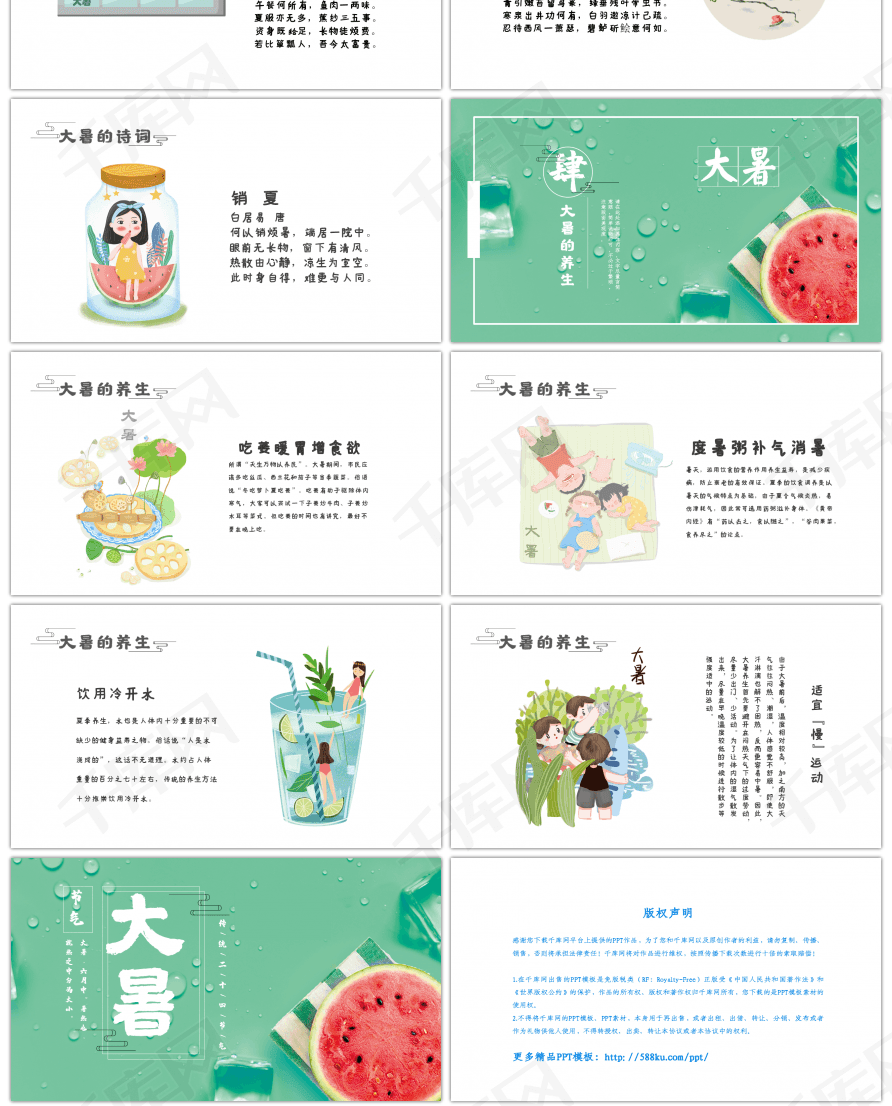摘要:,,大暑节气是夏季的最后一个节气,标志着炎热天气的顶峰。在英语中,它可以被描述为 the hottest period of summer,代表着一年中最热的时期。气温高且潮湿,人们需注意防暑降温,保持身体健康。大暑期间,许多地方会举行庆祝活动,如吃消暑食品,提醒人们注意防暑和保持身体的水分平衡。
Title: The Great Heat: The Introduction of the Summer Solstice
The summer solstice, also known as "Da Shu" in Chinese, is one of the most significant traditional solar terms in China. It marks the peak of summer and the longest day of the year. The exact date of the summer solstice varies each year but generally falls on June 20 or June 21.
The term "Da Shu" translates to "great heat," indicating the intense heat and high temperature that characterizes this season. During this period, the sun's rays are most direct and intense, resulting in scorching heat and high humidity. The combination of these two factors makes it the hottest period of the year.
The summer solstice is an important time for agricultural practices in many parts of China. Farmers take advantage of the warm weather to cultivate their crops and ensure a good harvest. The high temperature and adequate sunshine help in the growth and development of plants, while the increased humidity aids in soil moisture retention.
In traditional Chinese culture, the summer solstice is also a time for various customs and celebrations. People offer worship to ancestors and gods to seek their blessings and protection during the upcoming summer season. Some regions also have unique customs such as eating specific foods like noodles or dumplings to celebrate the occasion.
The summer solstice is also associated with various health concerns due to the extreme heat. People are advised to stay hydrated, avoid exposure to direct sunlight, and take measures to prevent heatstroke and other heat-related illnesses. Traditional Chinese medicine also suggests certain dietary changes and practices to maintain good health during this period.
In addition to its cultural and agricultural significance, the summer solstice also has a significant impact on climate change and global warming. As the Earth's temperature continues to rise, the summer solstice is becoming increasingly hotter and more challenging for people to bear. The extreme heat during this period can lead to various environmental problems such as increased air pollution, decreased air quality, and increased risk of natural disasters like floods and droughts.
To cope with the intense heat during the summer solstice, people around the world adopt various strategies and practices. These include using fans and air conditioning systems to create a cool environment, wearing light and loose clothes, avoiding outdoor activities during peak hours, and seeking shade and cool places wherever possible. In some regions, traditional practices like drinking herbal teas or eating cooling foods are also followed to relieve heat stress.
In conclusion, the summer solstice marks the beginning of the hottest period of the year in China. It is an important solar term not only for agricultural practices but also for cultural celebrations and health concerns. As climate change continues to affect the Earth's temperature, the summer solstice is becoming increasingly challenging for people to bear. Therefore, it is essential to adopt various strategies and practices to cope with the intense heat during this period and protect ourselves from heat-related illnesses.
The summer solstice is a time for celebration, reflection, and preparation. As we embrace the warmth and energy of this season, let us also take care of our health and environment to ensure a harmonious and safe summer ahead.




 辽ICP备2020012908号-1
辽ICP备2020012908号-1